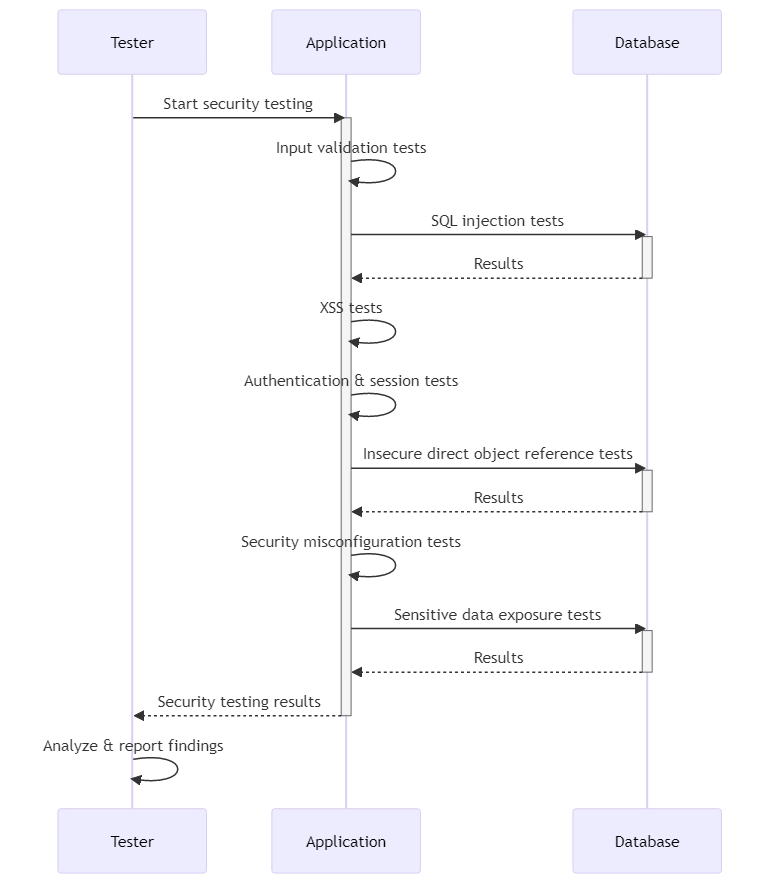
Security Testing: Implementation & Best Practices

Protecting your systems, applications, and data in the digital age is crucial. Cyber threats are becoming increasingly sophisticated. Keeping your information secure is essential. This is where security testing comes into play.
By proactively identifying vulnerabilities and weaknesses, security testing helps organizations fortify their defenses against potential attacks. This article will discuss the basics of testing, different types, and tips for successful implementation.
What is Security Testing?
Security testing checks how secure an app, system, or network is by simulating real-world attacks. The primary goal of testing is to uncover vulnerabilities, assess the potential impact of those vulnerabilities, and provide recommendations for remediation.

Organizations can proactively identify and address security flaws before malicious actors exploit them by conducting thorough testing.
Types of Security Testing
Security testing encompasses a wide range of techniques and methodologies. Let’s explore some of the common types of testing:
1. Vulnerability Scanning
Vulnerability scanning involves using automated tools to scan systems and applications for known vulnerabilities. These tools look for security problems in the system and make a report of any weaknesses they find.
Vulnerability scanning is an efficient way to identify potential weaknesses quickly. Use Nessus to check a website for common security issues like SQL injection or cross-site scripting (XSS).
2. Penetration Testing
Penetration testing, also called ethical hacking, mimics real-world attacks to evaluate how well an organization’s security measures work. Testers use a combination of automated tools and manual techniques to attempt to breach the system’s defenses. The team aims to identify vulnerabilities that attackers could exploit and offer recommendations for remediation.
Testing a company’s network to find weak passwords, firewall issues, or outdated systems that hackers could use to get in.
3. Web Application Testing
Web applications are a common target for cyber attacks because of their widespread use and potential for exploiting vulnerabilities. Testing focuses on identifying vulnerabilities specific to web-based applications, such as SQL injection, cross-site scripting (XSS), and broken authentication.
Testing a web application’s login functionality to ensure it properly validates user input and prevents unauthorized access.
4. Mobile Application Testing
With the increasing popularity of mobile devices, ensuring the security of mobile applications is crucial. Mobile application testing involves evaluating the security of mobile apps, including their data storage practices, communication protocols, and authentication mechanisms.
I am checking a mobile banking app to make sure it keeps user data safe and secure on the device.
5. API Testing
Application Programming Interfaces (APIs) have become a critical component of modern software development. API testing focuses on assessing the security of APIs, including authentication, authorization, and input validation.
Testing an API endpoint to ensure it properly validates and sanitizes user input to prevent injection attacks.
Security Testing Best Practices
To ensure effective security testing, consider the following best practices:
- Adopt a risk-based approach: Prioritize testing the most critical assets and think about how vulnerabilities could affect them.
- Use both manual and automated testing. Automated tools quickly find basic issues, but complex vulnerabilities require manual testing.
- Perform regular testing: testing should not be a one-time activity. Conduct regular assessments to ensure the ongoing security of your systems and applications.
- Keep up-to-date on security risks and adapt testing strategies to stay informed on the newest threats.
- Work with the development team to integrate security throughout the software development process.
Conclusion
Security testing is a vital component of any organization’s cybersecurity strategy. By proactively identifying and addressing vulnerabilities, organizations can significantly reduce the risk of cyber attacks and protect their critical assets.
Discover different types of testing and best practices to establish a robust testing program. This program will help safeguard your digital environment.
DataSunrise provides easy-to-use tools for database security, data discovery, and compliance to help organizations protect their sensitive data effectively. Join DataSunrise for an online demo to see how our solutions can enhance security and assist with compliance.
